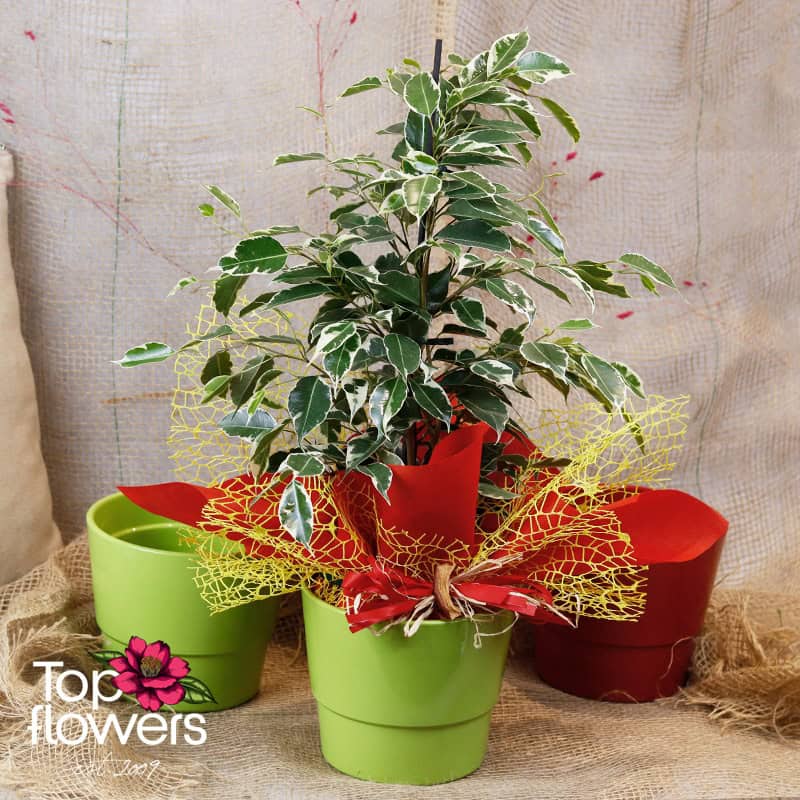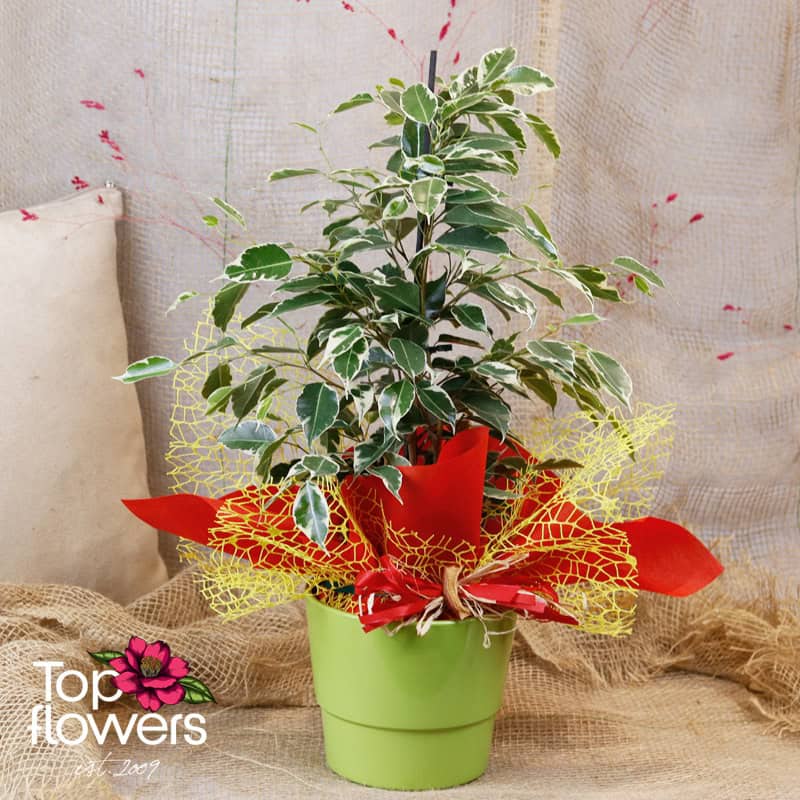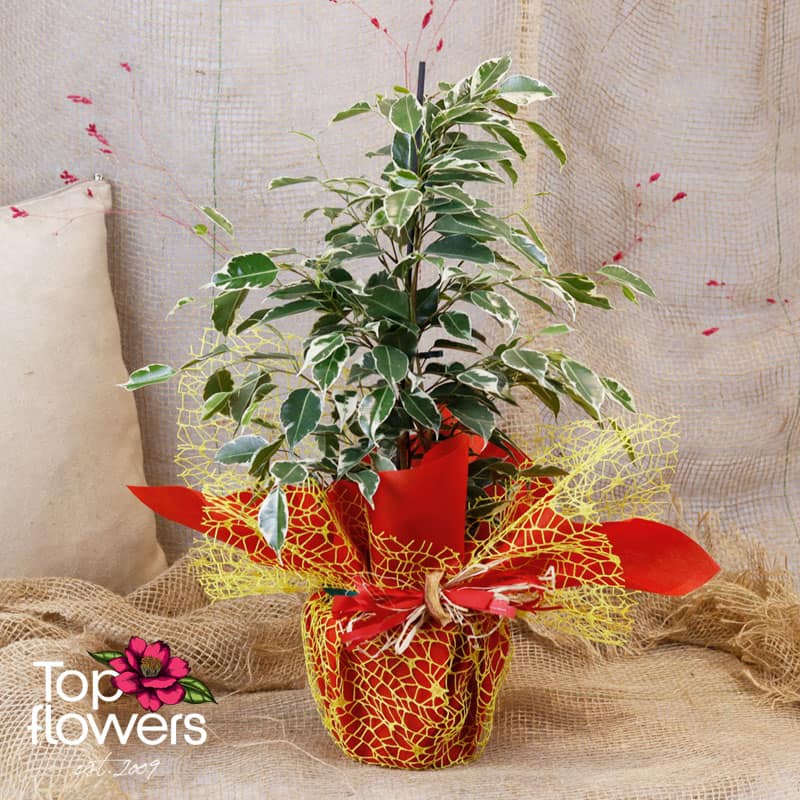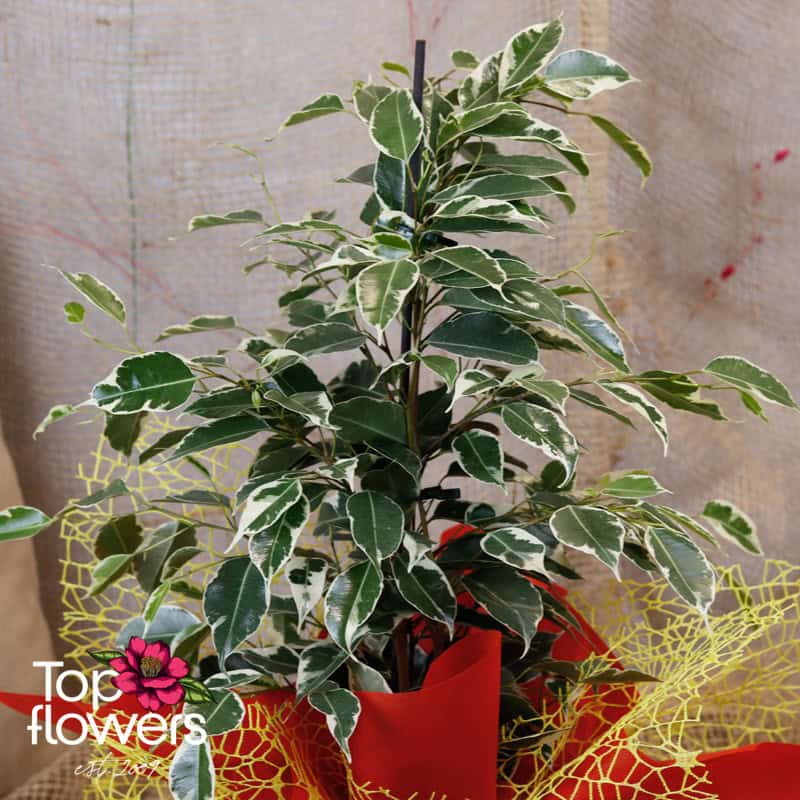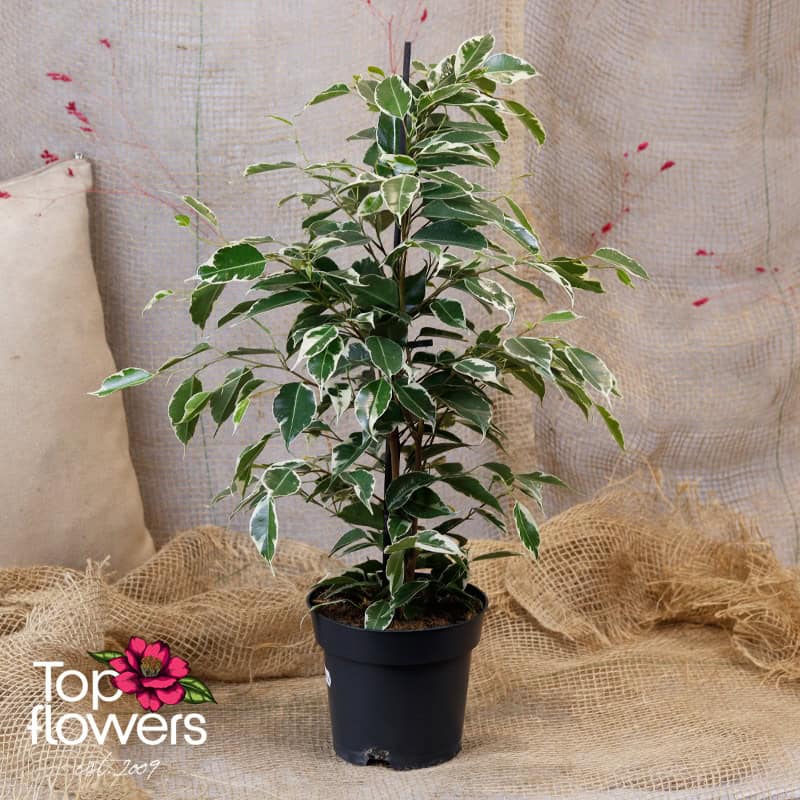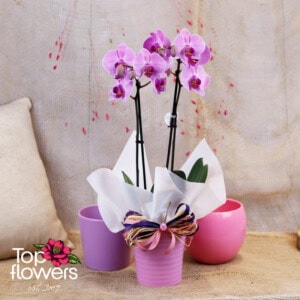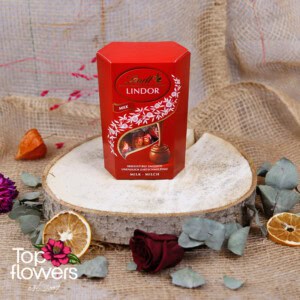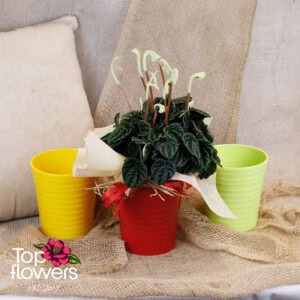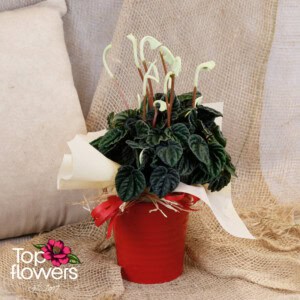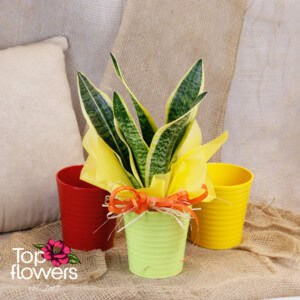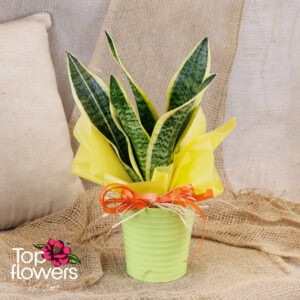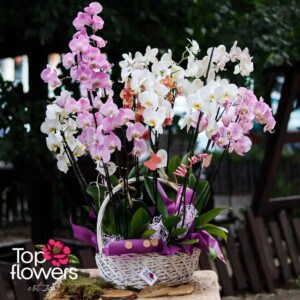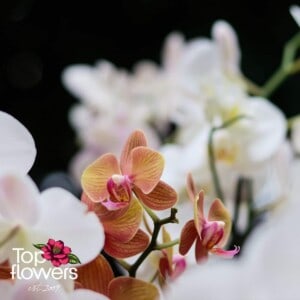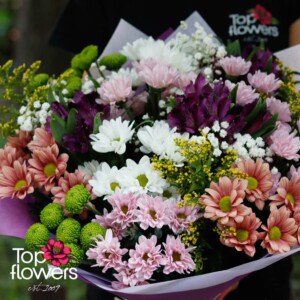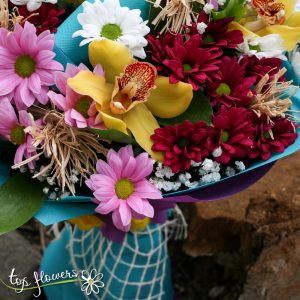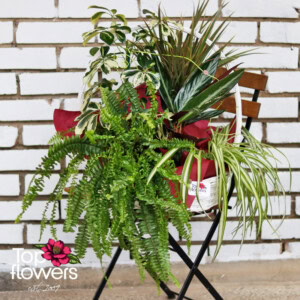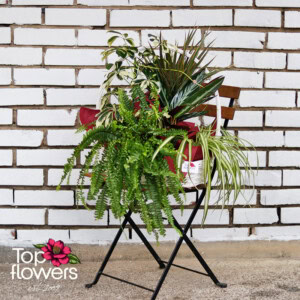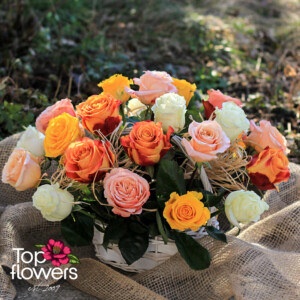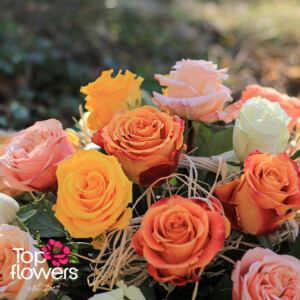- 1 piece. Evergreen plant Ficus benjamina
- From the menu, you have a choice whether the plant should be only with a transport pot, with a gift box, or with a ceramic pot and packaging.
- Art
- Deluxe
- Christmas
- Only roses
- Bouquets
- BOUQUETS
- Bouquets of Roses
- Bouquets of Lilies
- Bouquets of Orchids
- Bouquets of Eustoma
- Bouquets of Mini roses
- Bouquet with hydrangeas
- Bouquets of Alstroemeria
- Bouquets of Chrysanthemums
- ARRANGEMENTS
- Arrangements of Roses
- Arrangements of Lilies
- Arrangements of Orchid
- Arrangements of Eustoma
- Arrangements of Mini roses
- Arrangements of Chrysanthemums
- Arrangements of Alstromeria
- Arrangements with hydrangeas
- BASKETS
- Gift baskets
- Baskets with flowers
- Seasonal flowers
- Tulips
- Spring
- PLANTS
- GIFTS
- BY OCCASIONS
- BY BUDGET
- Up to 70 BGN
- From 70 BGN to 130 BGN
- Over 130 BGN
- COLLECTIONS
- Art
- Deluxe
- 101 roses
- Eternal roses
- Boxes of flowers
- Bouquets Classic
- Wedding floristics
- Funeral floristics
- FLOWERS BY OCCASIONS
- Flowers for birthday
- Flowers for name day
- Flowers for apology
- Flowers for love
- Flowers for men
- Flowers for wedding
- Flowers for a newborn
- Flowers for baptism
- Flowers for hospital
- Flowers for Thanksgiving
- Flowers and gifts for "Christmas"
0
Вход и Регистрация
No days off 09:00-20:00 | +359 884 829 368 | [email protected]

